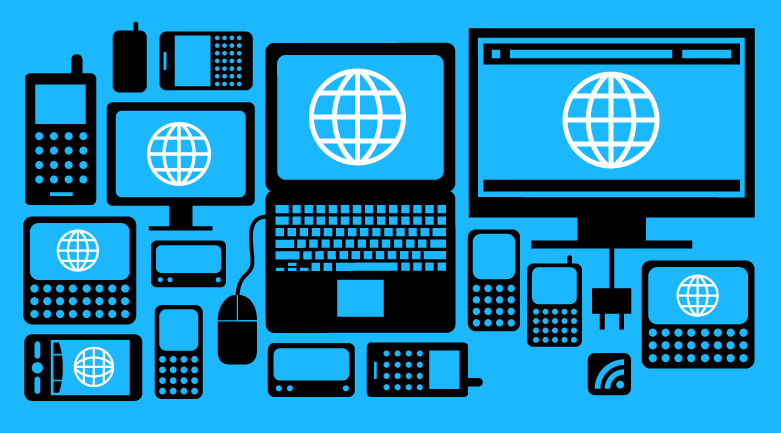
Free Press and 41 Other Groups Urge the FCC to Restore Net Neutrality
Free speech depends on unfettered access to open and nondiscriminatory platforms. But the federal court ruling that struck down the Net Neutrality rules has made it permissible for Internet service providers like AT&T and Verizon to interfere with our speech online.
ISPs can now force content providers to pay for the privilege of reaching audiences faster and more efficiently. Whoever can pay the most exorbitant fees to these ISPs will find their content cruising through at the best speeds while those who can’t cough up the funds will be relegated to the slow lanes.
In an effort to restore Net Neutrality, Free Press and 41 freedom of speech, open government, journalism and public interest groups last week wrote to the Federal Communications Commission and urged it to reclassify broadband to protect online speech. The release came as part of Sunshine Week, which highlights the need for government transparency and freedom of information.
Representing the voices of millions of members, these groups include the American Civil Liberties Union, Free Press, the Government Accountability Project, the National Hispanic Media Coalition, the PEN American Center, the Project on Government Oversight, Reporters Without Borders, the Society for Professional Journalists, the Sunlight Foundation and the Writers Guild of America East.
The signers are speaking out against ISPs that want to cherry-pick which content gets through to online audiences. “Protecting free speech rights,” the letter reads, “cannot be left to the promises of private entities, themselves motivated by the desire to privilege certain speakers over others and increase the return to their shareholders rather than their service to the public.”
We can’t let freedom of speech become a commodity that corporate giants exploit for profit. The FCC must acknowledge the Internet’s central role in our culture, declare it a common-carriage service and bar ISPs from discriminating against or blocking online content.
The full text of the letter and the list of signers follow below:
Dear Chairman Wheeler:
The D.C. Circuit’s decision in Verizon v. FCC dealt a huge blow to the open Internet, press freedom and our right to access information. As advocates for free expression and open government, we appreciate your agency’s role in protecting our free speech rights online and call on you to use your clear authority under Title II of the Communications Act to protect the open Internet.
The open Internet is our main conduit for freedom of expression and information. It is our library, our printing press, our delivery truck and our town square. Journalists, academics, communities and governments depend on the Internet to connect, communicate and collaborate every day. And as old models for news and information falter, the Internet has enabled new and independent media outlets to emerge and thrive.
With the court’s decision, however, broadband providers are now free to block or discriminate against online content, services and applications. Allowing broadband providers to control this once-open platform shifts power away from communities and individuals and toward entrenched companies like AT&T, Comcast, Time Warner Cable and Verizon. This will have a chilling effect on our rights to access, report and share information.
From the beginning, U.S. laws and leaders have protected these rights, acknowledging the fundamental need for our speech to be delivered without discrimination. Freedom of the press was not simply the freedom to print, but also the freedom to distribute speech across the country through a common-carrier network: the postal service. Our ability to utilize that network (and its successors) is central to our ability to self-govern.
That is why promoting and protecting our ability to exercise our free speech rights via common carriage is enshrined in our communications laws. Common carriage recognizes that the ability to have our speech carried free from undue discrimination is essential to our right to speak freely.
The issue is clear: Free speech depends on access to open and nondiscriminatory platforms for that speech. Without such principles governing online networks, we cannot guarantee the exercise of this most fundamental right.
Protecting free speech rights cannot be left to the promises of private entities, themselves motivated by the desire to privilege certain speakers over others and increase the return to their shareholders rather than their service to the public. That is why we need you and your colleagues at the FCC to correct the agency’s past mistakes and reassert the Commission’s clear authority over our nation’s communications infrastructure.
To preserve the open Internet as a vibrant space for press freedom and freedom of information, the FCC must reclassify broadband access services as telecommunications services to prevent discrimination and blocking online.
American Civil Liberties Union
Association of Alternative Newsmedia
Bitch Media
Center for Media and Democracy
Coalition to Protect New York
Defending Dissent Foundation
Diversified Media Enterprises
Fairness & Accuracy In Reporting
Free Press
Globalvision, Inc.
Government Accountability Project
iSolon.org
The LAMP (Learning About Multimedia Project)
Making Contact
Media Alliance
The Media Consortium
Mine Safety and Health News
Mother Jones
MuckRock
National Alliance for Media Arts + Culture
National Coalition Against Censorship
National Hispanic Media Coalition
National Priorities Project
News Taco
OpenTheGovernment.org
Park Center for Independent Media
Participatory Politics Foundation
PEN American Center
Personal Democracy Media
Project On Government Oversight
Reporters Without Borders
RootsAction.org
Society for Professional Journalists
Sunlight Foundation
Texas Observer
TheUpTake.org
Tikkun Magazine
Truthout
Tully Center for Free Speech at Syracuse University
WITNESS
Women’s Media Center
Writers Guild of America East